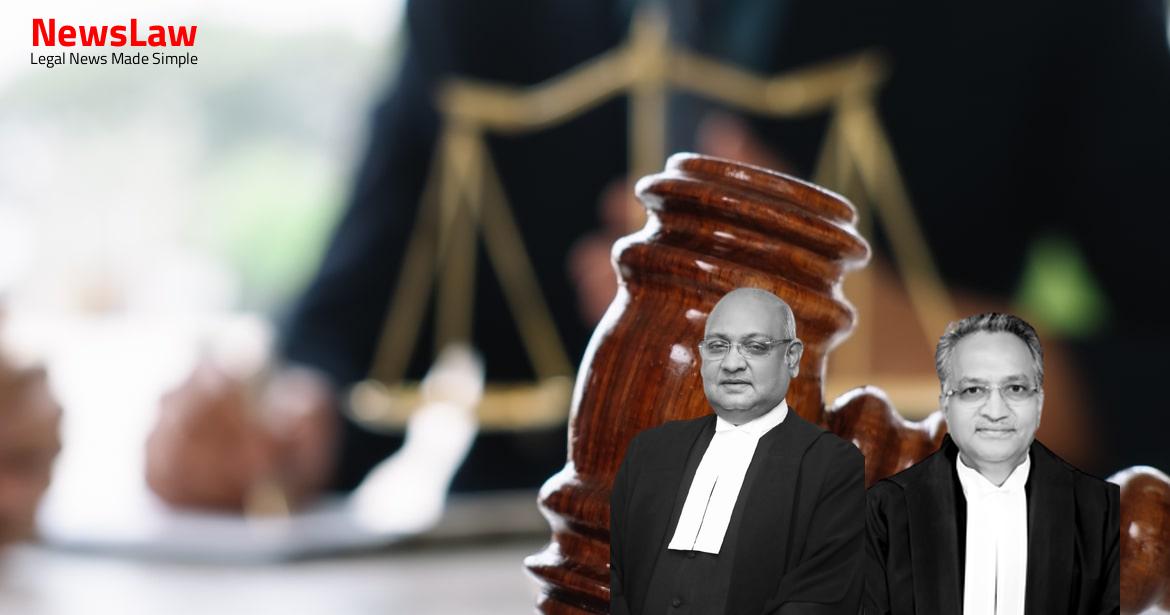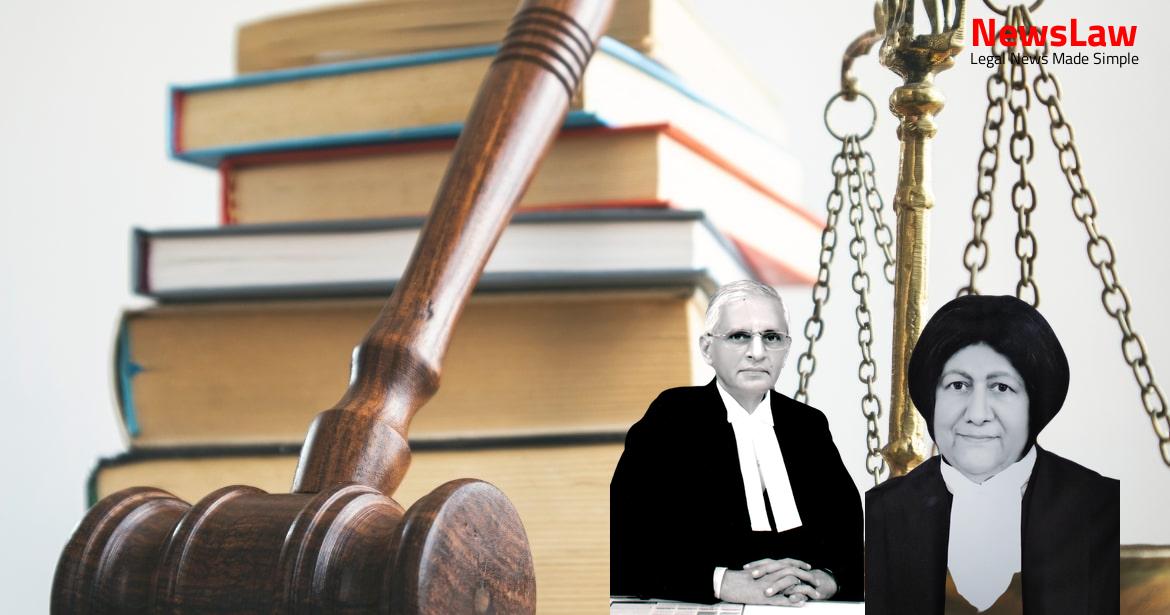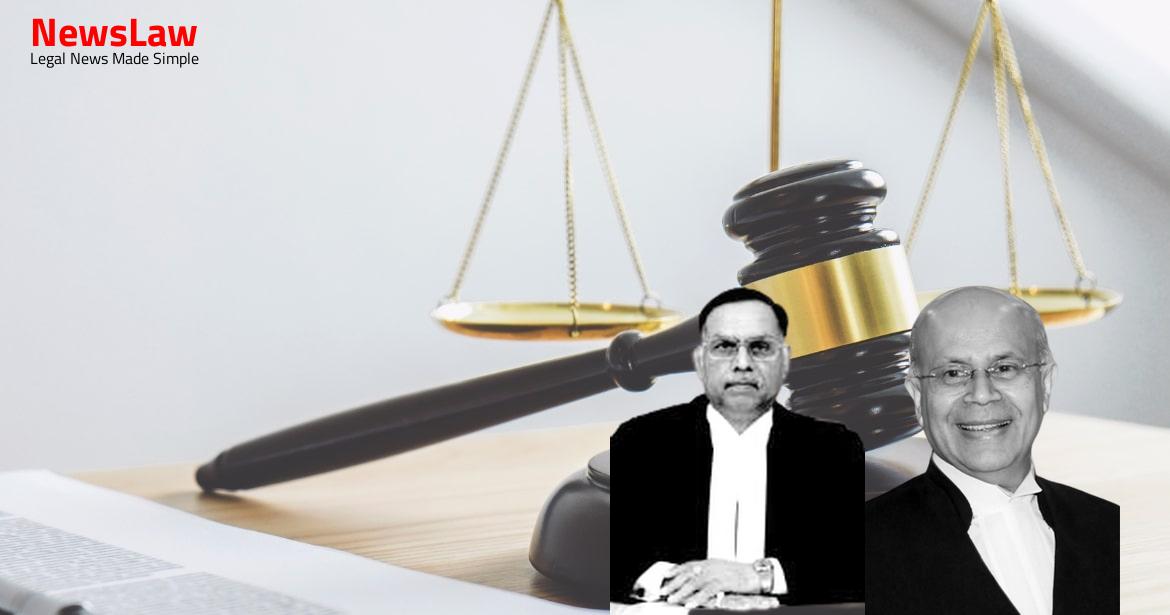Explore the intricate legal analysis conducted by the Court regarding the burden of proof in cases of wrongful termination. The Court’s evaluation of the employee’s duty to prove non-employment, the employer’s responsibilities, and the principles governing backwages. An insightful look into the legal reasoning behind decisions in such contentious matters, shedding light on the intricacies of labor law and justice.
Facts
- The appellant, a qualified Chartered Accountant, was appointed as Manager (Finance) on 22.10.1997
- In 2005, he was posted at Balaghat Mines as the Deputy Chief (Finance) and was suspended on 05.10.2007
- He reported late for work on three days due to the death of his father, resulting in show cause notices and dismissal
- He filed a writ petition in response to the dismissal, which was partly allowed by the Division Bench
- The main controversy pertains to his late reporting due to family reasons and subsequent dismissal
- The Division Bench ordered the reinstatement of the appellant.
- The Court denied him
Also Read: Legal Analysis: Exam Answer Key Discrepancy
Issue
- The appellant did not work during the period in question
- This fact needs to be considered in relation to the issue at hand
Also Read: Judicial Analysis on Back Wages in Employee Caste Verification Case
Arguments
- Appellant, a Chartered Accountant, claims victimization in the disciplinary proceedings launched against him.
- Appellant argues that burden of proof was on the employee, citing Section 106 of the Evidence Act, which was not referenced in an earlier judgment.
- High Court held no justification in launching disciplinary proceedings against the appellant.
- Counsel for respondent argues burden of proof lies with the employee to show non-employment during the disputed period.
- Appellant’s counsel cites previous judgments establishing the principle that the employee only needs to plead non-employment during the disputed period.
- Appellant refers to a specific case law, Deepali Gundu Surwase v. Kranti Junior Adhyapak Mahavidyalaya & Ors. (2013) 10 SCC 324, for support.
Also Read: Interpretation of Suspension Rules in Employment Case
Analysis
- The High Court’s reason for denying backwages in the present case is not acceptable.
- If the employee/workman is found not guilty of misconduct or falsely charged, full back wages should be awarded.
- The burden of proof should not be placed on the workman to prove non-employment.
- Long delays in finalizing litigation should not penalize the employee/workman.
- Employers, with more resources, can prolong legal battles to the detriment of the employee/workman.
- In cases of illegal or malafide termination, denying backwages may be unfair.
- It may be unjust to deny back wages solely due to a long time lapse between termination and reinstatement.
- It is easier to prove positive facts than negative ones regarding employment status.
- Courts should consider all these factors before deciding on the justification for denying backwages.
- The burden of proof regarding gainful employment lies on the employer.
- If the workman shows they were not employed, the onus shifts to the employer to prove that the employee was gainfully employed.
- In cases of wrongful termination, reinstatement with back wages is the normal rule.
- Factors considered for awarding full back wages include length of service, nature of misconduct, and financial condition of the employer.
- Employee/workman must show they were not gainfully employed to claim full back wages.
- Employer must plead and provide evidence if they want to avoid paying full back wages.
- Appellant has a claim for over Rs.3 crores with no basis for termination of services mentioned in the impugned order.
- The High Court was deemed to be in error for not making appropriate orders related to backwages.
- There are conflicting claims regarding the quantum of backwages with the respondent estimating it to be around Rs.66 lakhs.
- Termination of services by the respondent was found to lack worthwhile reasons.
Decision
- The impugned order is modified, and the respondent is directed to pay Rs. 80 lakhs to the appellant within six weeks.
- No costs are ordered to be paid.
- The appeal is partly allowed, and the appellant is to receive Rs. 1.5 crores based on client instructions.
- Notional promotion benefits are not considered in this decision, as there is pending litigation on the matter in the High Court.
- In the interest of justice, the appellant is to be paid a total of Rs. 80 lakhs as backwages covering the entire termination period.
Case Title: PRADEEP S/O RAJKUMAR JAIN Vs. MANGANESE ORE(INDIA) LIMITED (2021 INSC 864)
Case Number: C.A. No.-007607-007607 / 2021



